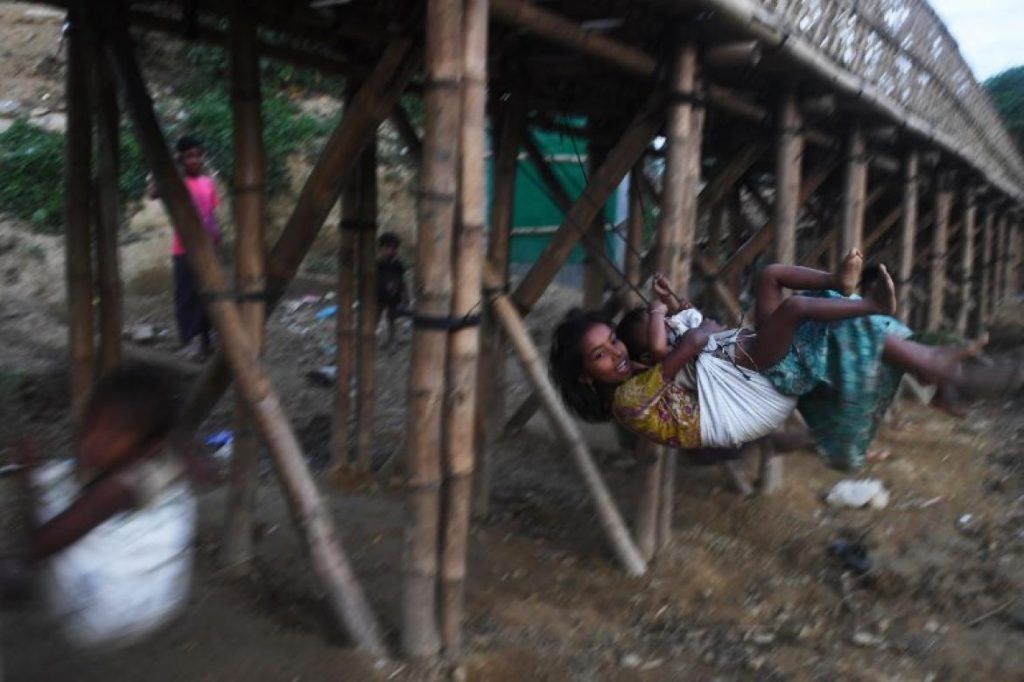By AFP
COX’S BAZAR — Bangladesh on Wednesday stuck by plans to begin repatriating some of the hundreds of thousands of Rohingya minority who fled Myanmar last year, despite UN warnings and trepidation among the refugees themselves.
“All necessary arrangements and preparation have been taken,” Bangladesh’s refugee commissioner Mr Mohammad Abul Kalam told reporters, adding: “Our primary target for tomorrow [Thursday] is 150 [Rohingya refugees] from 30 families.”
He said the process would involve Bangladesh handing the refugees, the first among a preliminary 2,260 currently in vast camps in southeastern Bangladesh, over to Myanmar at a transit point on the border between the two countries.
“There will be some verification process which is a very regular custom. That will happen there,” Abul said.
Support more independent journalism like this. Sign up to be a Frontier member.
More than 720,000 mostly Muslim Rohingya sought refuge from a Myanmar military crackdown launched from August last year that UN investigators say amounted to ethnic cleansing, joining some 300,000 already in Bangladesh.
Myanmar’s military has denied nearly all wrongdoing, justifying its crackdown as a legitimate means of rooting out Rohingya militants.
Bangladesh says only those who volunteer will be returned, but UN High Commissioner for Human Rights Ms Michelle Bachelet said Tuesday that many refugees are panicking at the prospect of being sent back against their will.
“With an almost complete lack of accountability — indeed with ongoing violations — returning Rohingya refugees to Myanmar at this point effectively means throwing them back into the cycle of human rights violations that this community has been suffering for decades,” Bachelet said.
She said in a statement that the violations against the Rohingya “amount to the worst atrocities, including crimes against humanity and possibly even genocide.”
Fled for the hills
According to Rohingya community leaders, many of those slated to be repatriated have gone into hiding within the camps at Cox’s Bazar, the border district hosting a small refugee city perched on hillsides.
As a result, it remained unclear how many people Bangladesh would be able to hand over. “Ninety-eight percent of the families (on the list) have fled,” community leader Mr Nur Islam said.
He and other community leaders said that an increase in the number of Bangladeshi soldiers at the camps in recent days was stoking anxiety.
“Everyone is tense, the situation is very bad,” Mr Abdur Rahim, another leader, told AFP in Cox’s Bazar.
“There are a lot of army and police inside the camps. They are checking the ID cards of Rohingya,” Rahim told AFP.
A local police chief, Mr Abul Khaer, played down reports of additional security, saying nothing in terms of personnel had changed in recent months.
Amnesty International on Wednesday called on Bangladesh and Myanmar authorities to “immediately halt” their plans, saying it was a “reckless move which puts lives at risk”.
“These women, men and children would be sent back into the Myanmar military’s grasp with no protection guarantees, to live alongside those who torched their homes and whose bullets they fled,” Mr Nicholas Bequelin from the rights group in a statement.
“Returns at this time cannot be safe or dignified and would constitute a violation of Bangladesh’s obligations under international law,” Bequelin said.
US Vice President Mike Pence told Daw Aung San Suu Kyi on Wednesday the violence against the Rohingya was “without excuse”, adding pressure to Myanmar’s civilian leader who this week had an Amnesty International honour revoked.







